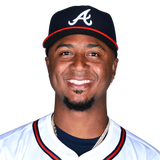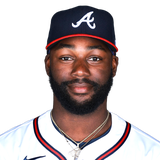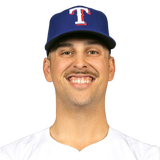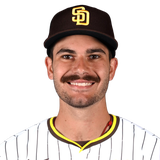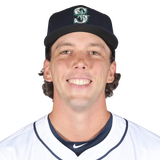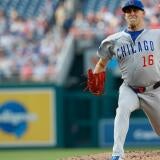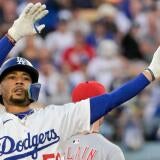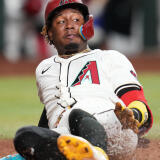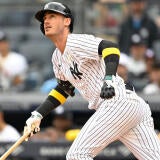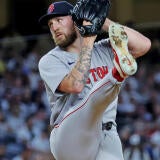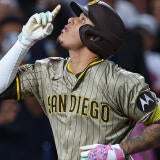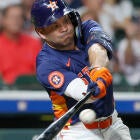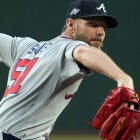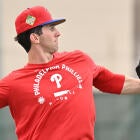2023 Fantasy Baseball Draft Prep: Busts 2.0 centers on Ozzie Albies, Logan Gilbert, others to avoid in drafts
These are the players you'll want to avoid at their current ADP

As Fantasy Baseball analysts, we reserve the right to change our minds. We put together our rankings in the depths of winter, and then things change. Sometimes, players get hurt in the leadup to spring, or their playing time projections change and we have to adjust our expectations from January to March.
But sometimes, we just change our minds! Maybe we like a player for somewhat superficial reasons but then a deeper dive reveals warts we missed on the first pass. We're doing a ton of drafts at this time of the year, and that can help move things around, too. Or maybe you're introduced to new information that helps shift your perspective – I'm doing an hour-plus podcast six times a week with two very smart, very well-researched analysts, and Scott White and Frank Stampfl definitely change my mind on players all of the time.
Since we did our first round of sleepers, breakouts, and busts back in January/early-February, I've changed my mind on quite a bit. For instance, the following two players made my first round of Busts (v1.0) but I've softened my stance on them since. I'm not necessarily going out and drafting them every time out, but I'm more open to it than I was a few weeks back:
Removing from Busts 2.0
- Taylor Ward – Going outside of the first 10 rounds on average, I don't really hate Ward's price. I'm skeptical of his chances to repeat last year's production, especially given how front-loaded it was, but there isn't as much enthusiasm for Ward as I thought there would be, so I'm okay with his price.
- Hunter Greene – Greene is one of my tougher bust calls, because he's so much fun. He's probably the hardest throwing starting pitcher in major-league history, and his slider is a legitimate wipeout pitch. The problem is, his fastball wasn't actually a great pitch last season – the 17 homers he gave up with it were the third-most for any pitch in baseball. Greene gets pushed into the top 10 rounds quite often, which is an awfully heavy price to pay for a one-and-a-half-pitch pitcher. On the other hand, he's spent the offseason working on his changeup, and he threw it 24% of the time in his most recent spring start. If that pitch can help keep hitters off the fastball, the breakout potential here is obviously enormous. I'm removing him from my busts list because I don't want to miss out on the potential breakout, even if I still think it's a risky profile.
Of course, Fantasy analysts are stubborn creatures by nature, too. We like to plant our flags, and generally stick with them. So, while those prior two are no longer on my busts list, the follow six still are:
Staying in Busts 2.0
- Bobby Witt – Witt's price in NFC leagues remains way too high, but he's going more toward the middle to end of the second round in other leagues (16.6 ADP at FantasyPros.com's consensus), which is a lot easier to stomach. His plate discipline and lack of production track record make him a risk, but Witt is a decent pick in the second round. Still a bust in the first round.
- MJ Melendez – Similarly, Melendez's price has fallen at other sources, including a 155 ADP at CBS Fantasy that makes him a much easier buy. I don't love him as a top-100 pick, but the upside is worth once you get to the double-digit rounds. A bust who becomes a value based on the league.
- Andres Gimenez – The case against Gimenez isn't really about the price, which has held pretty steady. It's more skepticism of his skill set – he's a good contact hitter, but not a great one, and he doesn't hit the ball particularly hard. If he's more like a 12-homer guy, I'm not sure the rest of the profile is worth chasing. Still a bust pick.
- Harrison Bader – I still just don't really see what Bader brings to the table with a top-200 pick. Sure, the risk is limited there, but he hasn't been a league-average hitter by expected wOBA since the shortened 2020 season and he was slowed by a plantar fasciitis injury that tends to linger and slow players down. Even as a fourth or fifth outfielder, there are plenty of players I'd rather have. No thanks.
- Spencer Strider – Strider is a very good pitcher, and he's likely to be very good this season. But the 134 innings he threw last season were the most he's ever thrown by 40, and the Braves have every reason they think they'll be playing into October. Can you reasonably project him for more than 160 innings even if everything goes right? I just can't pay a top-six SP price for him.
- Tyler Glasnow – Glasnow had a top-90 price prior to the oblique injury that is expected to keep him out at least through the first few weeks of the season. In 35 NFC drafts since, his ADP sits at 159.74. That's a little ahead of where I have him ranked, but it's a reasonable enough price. However, we've already seen the risk in his profile come to fruition. There's a decent chance Glasnow just isn't able to give you much of anything this season.
And here are six more players I'm avoiding in drafts as I update my list:
One of the tough things about the constantly shifting offensive environment in MLB the past few years is that it makes it even harder to know what a player's "true" talent level is. Albies looked like a star during the juiced ball era, when his pull-heavy approach allowed him to maximize a somewhat middling raw power profile. However, it looked like that approach may have caught up to him last season, as he hit just .247/.294/.409 with just a 19-homer pace over 150 games. If Albies gets back to stealing 20-ish bases like he did in 2022, that's probably enough to make him a solid starting Fantasy option, but certainly not the difference maker he's been at his best. Albies is talking during Spring Training about aiming for a 40-40 season, but I'm not sure he's a good bet for half of either total at this point.
| ||||||||||||||||||||||
I swear, I don't have anything against the Atlanta Braves – Ronald Acuna is my No. 1 player! I just don't quite buy the price for either Harris or Albies, though for slightly different reasons. If what Harris did last season was for real, he's probably a better hitter than Albies – Harris sported impressive quality-of-contact metrics for a 21-year-old with little experience above the low minors, and he did it with a strikeout rate that wasn't much above league average. He's young, and he's a very good athlete, and that's a profile it makes a lot of sense to bet on. The problem here is the price – Harris' consensus ADP is 23.8, and that's just too much to pay for one partial season that does have some question marks. Harris struggled against lefties, hitting .238/.284/.365 with pretty rough plate discipline, which is one knock against him. Harris also managed to hit 19 homers despite a pretty massive 56.2% groundball rate – mostly thanks to a 22.9% HR/FB rate. For context, that was the sixth-highest in baseball, nestled just between Mike Trout and Austin Riley, and I don't think it's unfair to say Harris probably doesn't quite match up to those guys in terms of power expectations moving forward. Of course, he's young enough that Harris is by no means a finished production, so he could very well take a step forward and justify this price. I wouldn't be shocked. But I'm just not comfortable paying for a step forward at this point in the draft.
| ||||||||||||||||||||||
It's starting to look like Jordan Walker is mashing his way into an Opening Day job for the Cardinals, and every Fantasy analyst has Lars Nootbaar on their breakout list, and something's gotta give in the Cardinals outfield. Maybe it'll be Dylan Carlson, who has mostly disappointed in his first couple of MLB seasons, who loses playing time. Or maybe O'Neill will find himself on the outside looking in. O'Neill was incredible in 2021, but he came tumbling back to Earth in 2022 amid a series of nagging injuries – something he is no stranger to. O'Neill remains an impressive physical specimen, but 2021 sure looks like the outlier here. He's slated for an everyday job right now, but O'Neill finds himself in a suddenly very crowded outfield situation, with a lot of pressure to perform. If he doesn't, things could go south in a hurry. I just can't justify a top-100 pick on that profile.
| ||||||||||||||||||||||
Lowe made some real changes last season. He became a much more aggressive hitter, increasing his swing rate from 44.7% to 52.2%, and while that occasionally led to more swings and misses and a huge reduction in walk rate, it was a tradeoff well worth making because he managed to do it without sacrificing much of anything in terms of quality of contact. His barrel rate per batted ball inched up slightly, from 9.5% to 9.9%, but since he cut his strikeout rate by 2.4 points, it led to a pretty sizeable overall increase in production. The question I have is whether he can sustain those gains. Pitchers responded to Lowe's increased aggressiveness by throwing more pitches in the zone than they did the previous season, despite the fact that he was crushing them. I think we're likely to see a change in how Lowe is pitched to, and I'm just not sure how he'll adjust to that. I may miss out on a repeat performance, but I think the risk of Lowe regressing is great enough to put him on my "avoids" list.
| ||||||||||||||||||||||
One of the great leaps forward in our understanding of baseball came with the development of Defensive Independent Pitching stats, like FIP, xFIP, and the like. The idea behind them was a simple one: Pitchers really don't have very much control over what happens to them outside of strikeouts, walks, and home runs allowed. As it turns out, it was a bit too simple, and work in the space since has focused on attempting to quantify just how much control pitchers actually do have over the results of balls in play, and it turns out, some pitchers really do have a lot of control of it. The problem is, pitcher quality-of-contact metrics tend to take a while to stabilize, and it's hard to know how much variance from one season is actually in any given pitcher's control. Cease is going to be a big test case for that, as he went from allowed a .383 expected wOBA on contact in 2021 to a .313 mark in 2022. He went from solidly below average to one of the best in baseball from one year to the next, in other words. If he can sustain those gains, he's going to remain a very good pitcher moving forward. But seeing as he's being priced as if we're absolutely certain it was for real, I just can't bring myself to get on board. He's going to rack up a ton of strikeouts no matter what, but if Cease falls back to his 2021 levels, he's going to be a drag on your ratios. He's giving off real Robbie Ray vibes for me.
| ||||||||||||||||||||||
Gilbert has some prospect pedigree and was pretty solid last season, posting a 3.20 ERA in 185.2 innings of work, making him a rare young pitcher who is actually a decent bet for volume. The problem is, if you set the over/under on his ERA at 3.99 for 2023, I might take the over. His xERA was 4.11, and we now have two years in a row of him sporting well below average quality of contact metrics. He also took a bit step backwards in strikeout rate in 2022, falling to 22.8%, and while there's room for that to grow, I'm not sure he'll ever be much more than a slightly above-average strikeout pitcher. You can kind of squint and see a Shane Bieber-like outcome from Gilbert if his secondary pitches take a big step forward, but right now, none of them looks like a go-to swing-and-miss pitch the way Bieber's slider and curveball have been. Gilbert has age and pedigree on his side, and he seems like a somewhat safe bet for a lot of innings, but unless he takes a big step forward, I think a repeat of 2022 seems pretty unlikely, let alone a big step forward.
| ||||||||||||||||||||||


